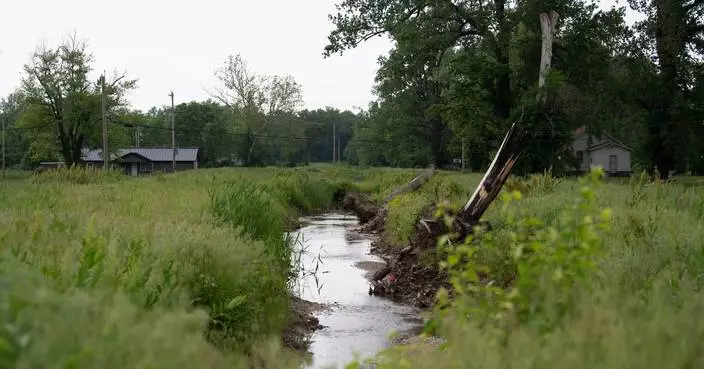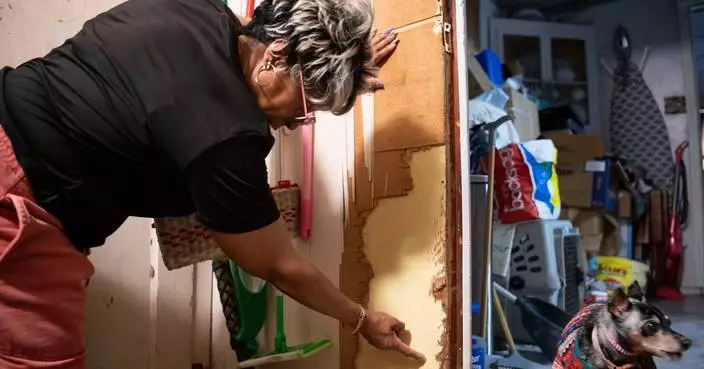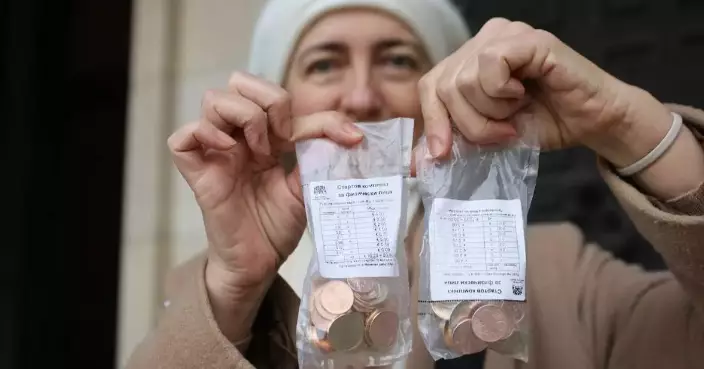The Latest on the four-day voting in the European Union to fill the 751-seat European Parliament (all times local):
2:50 p.m.
Click to Gallery
Czech Prime Minister Andrej Babis, right, and his wife Monika Babisova, left, cast their votes in the European elections in Pruhonice near Prague, Czech Republic, Friday May 24, 2019. (Michaela RihovaCTK via AP)
Czech Prime Minister Andrej Babis, left, casts his vote in the European elections in Pruhonice near Prague, Czech Republic, Friday May 24, 2019. (Michaela RihovaCTK via AP)
Taoiseach Leo Varadkar at the polling station in Scoil Thomais, Castleknock as people across the Republic of Ireland go to the polls to vote in the European and local elections along with the referendum on Ireland's divorce laws, in Dublin, Friday May 24, 2019. (Brian LawlessPA via AP)
Taoiseach Leo Varadkar arrives to cast his vote at Scoil Thomais, Castleknock as people across the Republic of Ireland go to the polls to vote in the European and local elections along with the referendum on Ireland's divorce laws, in Dublin, Friday May 24, 2019. (Brian LawlessPA via AP)
Polls have opened for the European Parliament elections in the Czech Republic, with a centrist party led by populist Prime Minister Andrej Babis expected to win despite the fraud charges he faces involving European Union funds.
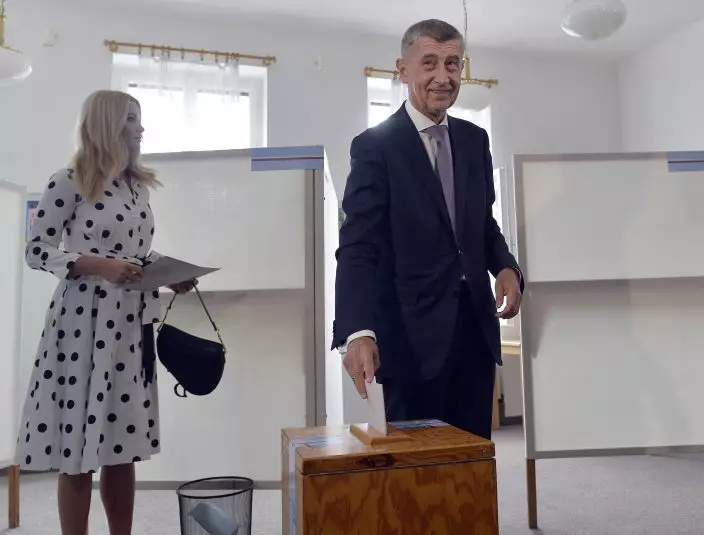
Czech Prime Minister Andrej Babis, right, and his wife Monika Babisova, left, cast their votes in the European elections in Pruhonice near Prague, Czech Republic, Friday May 24, 2019. (Michaela RihovaCTK via AP)
The Czechs on Friday opened their two-day ballot for their country's 21 seats in the 751-seat European Parliament. Voters in the Netherlands and Britain on Thursday kicked off four days of voting across the 28-nation bloc.
Babis' ANO (YES) movement is predicted to win up to 25% of the vote, followed by the moderate euroskeptic Civic Democratic Party and the pro-European Pirate party.
Babis wants his country to remain in the bloc but is calling for EU reforms.
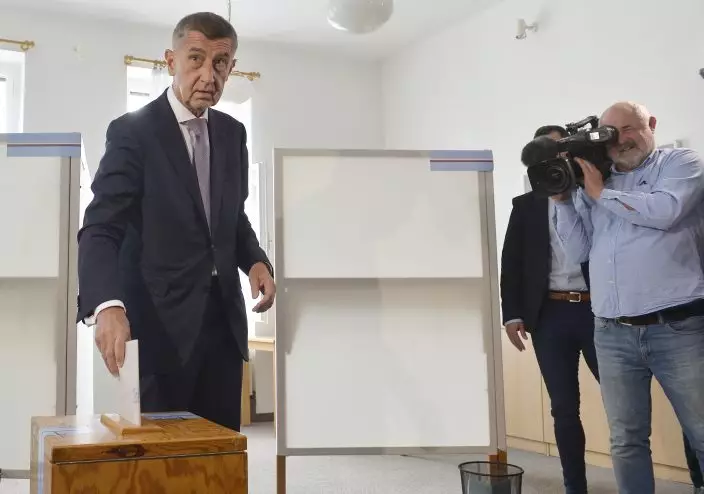
Czech Prime Minister Andrej Babis, left, casts his vote in the European elections in Pruhonice near Prague, Czech Republic, Friday May 24, 2019. (Michaela RihovaCTK via AP)
The country's most ardent anti-EU group, the Freedom and Direct Democracy party, is predicted to win around 10% of the vote and capture its first seats in the EU legislature.
1 p.m.
Protesters are holding rallies in several European Union countries to demand tougher action against global warming, as the 28-nation bloc votes to fill the European Parliament.
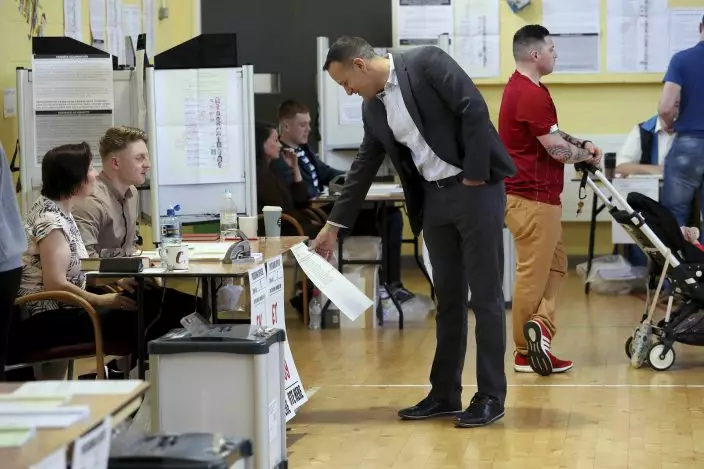
Taoiseach Leo Varadkar at the polling station in Scoil Thomais, Castleknock as people across the Republic of Ireland go to the polls to vote in the European and local elections along with the referendum on Ireland's divorce laws, in Dublin, Friday May 24, 2019. (Brian LawlessPA via AP)
Thousands attended a rally Friday in Berlin, where mostly young people waved banners with slogans such as "There is no planet B" or "Plant trees, save the bees, clean the seas."
Many protesters will be too young to vote when Germans cast ballots Sunday in the European Parliament election, but are pressing family and older friends to consider the world's long-term future.
Clara Kirchhoff said the election for the EU's 751-seat assembly was particularly important for tackling climate change on a continental level.
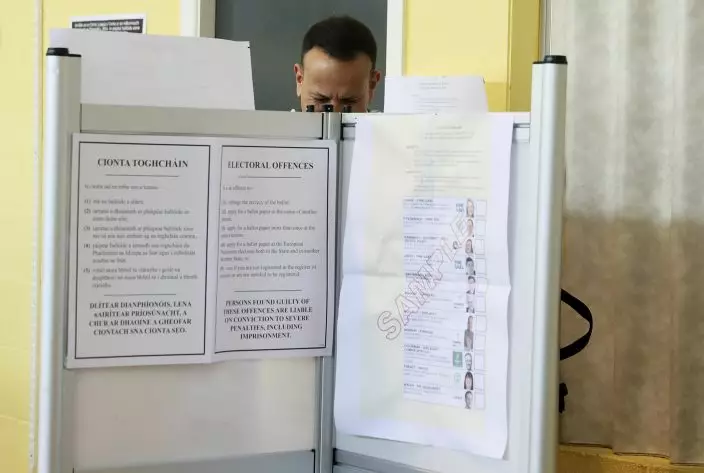
Taoiseach Leo Varadkar arrives to cast his vote at Scoil Thomais, Castleknock as people across the Republic of Ireland go to the polls to vote in the European and local elections along with the referendum on Ireland's divorce laws, in Dublin, Friday May 24, 2019. (Brian LawlessPA via AP)
The 17-year-old says "there's no point in Germany doing a lot for the climate and others not pulling their weight
8 a.m.
Ireland is going to the polls to kick off the second day of European Union elections which have already caused a stir in the Netherlands.
According to a surprise Ipsos exit forecast late Thursday, the Dutch Labor Party of European Commission Vice President Frans Timmermans will become the country's biggest party in the European Parliament.
Britain also voted on Thursday, and in neighboring Ireland polls opened Friday morning. The Czech Republic was set to open two days of voting in the early afternoon.
By Sunday night, all 28 nations will have voted and results will start to come in. The vote is seen as a battle between pro-EU parties and those who seek to wrest power from the EU and back to national capitals.
12:01 a.m.
Pro-European Dutch parties were predicted to win most of the country's seats in the European Parliament, with right-wing populist opponents of the European Union managing to take only four of the nation's 26 seats.
In a surprise forecast, the Dutch Labor Party of European Commission Vice President Frans Timmermans on Thursday became the country's biggest party in the 751-seat European Parliament, according to an Ipsos exit poll.
The poll was published by Dutch national broadcaster NOS after polling stations closed Thursday evening in Netherlands. Earlier in the day, Dutch and British voters kicked off the first of four days of voting for the European Parliament in all of the EU's 28 nations.
Official results will only be announced after the last polling station in the EU closes late Sunday.
The Dutch Labor party was forecast to win five seats, while the pro-European center right VVD of Dutch Prime Minister Mark Rutte gained one seat to win a total of four seats. Populists also won four seats.
WASHINGTON (AP) — U.S. forces boarded another oil tanker in the Caribbean Sea on Friday, the U.S. military said, as the Trump administration targets sanctioned tankers traveling to and from Venezuela as part of a broader effort to take control of the South American country's oil.
The predawn raid was carried out by Marines and Navy sailors launched from the aircraft carrier USS Gerald R. Ford, part of the extensive force the U.S. has built up in the Caribbean in recent months, according to U.S. Southern Command, which declared “there is no safe haven for criminals” as it announced the seizure of the tanker called the Olina. The Coast Guard then took control of the vessel, officials said.
Southern Command and Homeland Security Secretary Kristi Noem both posted unclassified footage on social media Friday morning of a U.S. helicopter landing on the vessel and U.S. personnel conducting a search of the deck and tossing what appeared to be an explosive device in front of a door leading to inside the ship.
In her post, Noem said the ship was “another ‘ghost fleet’ tanker ship suspected of carrying embargoed oil” and it had departed Venezuela “attempting to evade U.S. forces."
The Olina is the fifth tanker that has been seized by U.S. forces as part of the effort by President Donald Trump’s administration to control the production, refining and global distribution of Venezuela’s oil products, and the third since the U.S. ouster of Venezuela President Nicolás Maduro in a surprise nighttime raid.
In a post on his social media network later in the day, Trump said the seizure was conducted “in coordination with the Interim Authorities of Venezuela” but offered no elaboration.
The White House did not immediately respond to requests for more details.
Venezuela’s government acknowledged in a statement that it was working with U.S. authorities to return the tanker, “which set sail without payment or authorization from the Venezuelan authorities,” to the South American nation.
“Thanks to this first successful joint operation, the ship is sailing back to Venezuelan waters for its protection and relevant actions,” according to the statement.
Samir Madani, co-founder of TankerTrackers.com, said his organization used satellite imagery and surface-level photos to document that at least 16 tankers left the Venezuelan coast in contravention of the quarantine U.S. forces have set up to block sanctioned ships from conducting trade. The Olina was among that flotilla.
U.S. government records show that the Olina was sanctioned for moving Russian oil under its prior name, Minerva M, and flagged in Panama.
While records show the Olina is now flying the flag of Timor-Leste, it is listed in the international shipping registry as having a false flag, meaning the registration it is claiming is not valid. In July, the owner and manager of the ship on its registration was changed to a company in Hong Kong.
According to ship tracking databases, the Olina last transmitted its location in November in the Caribbean, north of the Venezuelan coast. Since then, however, the ship has been running dark with its location beacon turned off.
While Noem and the military framed the seizure as part of an effort to enforce the law, other officials in the Trump administration have made clear they see it as a way to generate cash as they seek to rebuild Venezuela's battered oil industry and restore its economy.
In an early morning social media post, Trump said the U.S. and Venezuela “are working well together, especially as it pertains to rebuilding, in a much bigger, better, and more modern form, their oil and gas infrastructure.”
The administration said it expects to sell 30 million to 50 million barrels of sanctioned Venezuelan oil, with the proceeds to go to both the U.S. and Venezuelan people. But the president expects the arrangement to continue indefinitely. He met Friday with executives from oil companies to discuss his goal of investing $100 billion in Venezuela to repair and upgrade its oil production and distribution.
Vice President JD Vance told Fox News this week that the U.S. can “control” Venezuela’s “purse strings” by dictating where its oil can be sold.
Madani estimated that the Olina is loaded with 707,000 barrels of oil, which at the current market price of about $60 a barrel would be worth more than $42 million.
Associated Press writers Dánica Coto in San Juan, Puerto Rico, Josh Boak in Washington, and Regina Garcia Cano in Caracas, Venezuela, contributed to this report.
This story has been corrected to reflect that the United States has seized three tankers, not five, since Nicolás Maduro was ousted as Venezuela’s president.
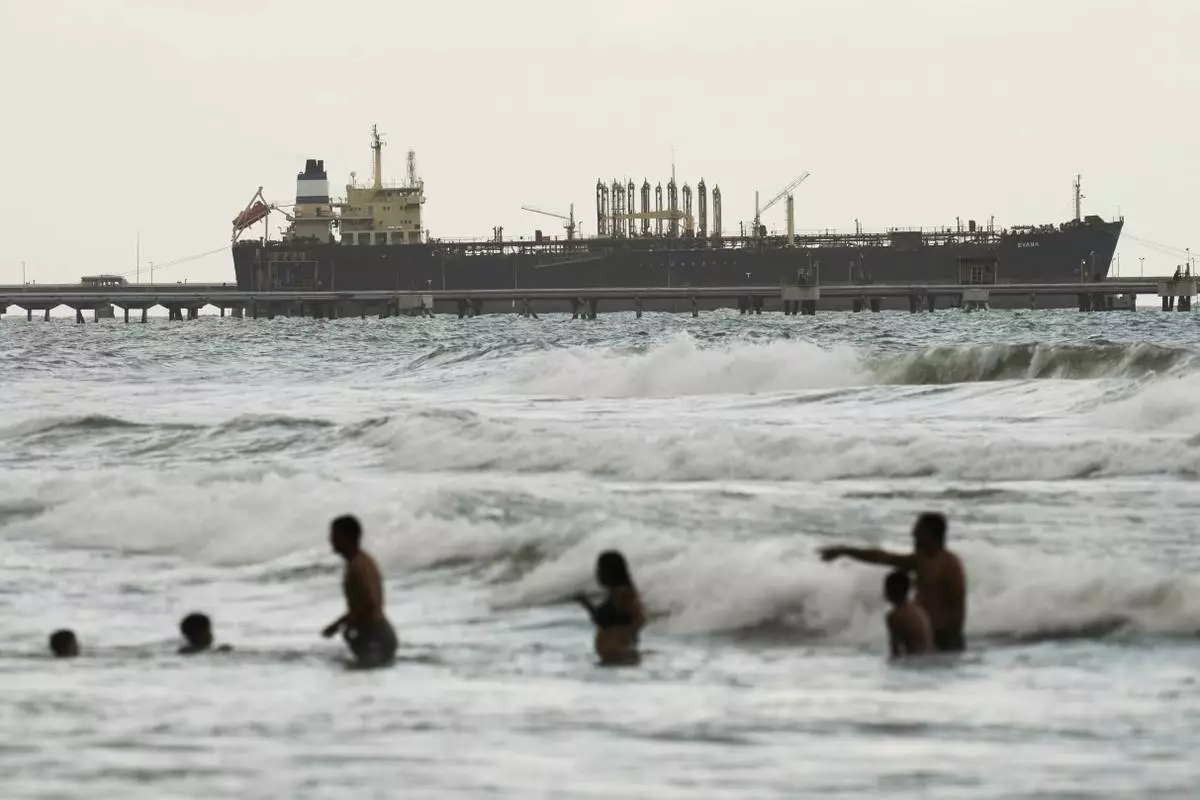
FILE - Evana, an oil tanker, is docked at El Palito Port in Puerto Cabello, Venezuela, Dec. 21, 2025. The U.S. military says U.S. forces have boarded another oil tanker in the Caribbean Sea. The Olina is the fifth tanker seized by U.S. forces. (AP Photo/Matias Delacroix, File)










